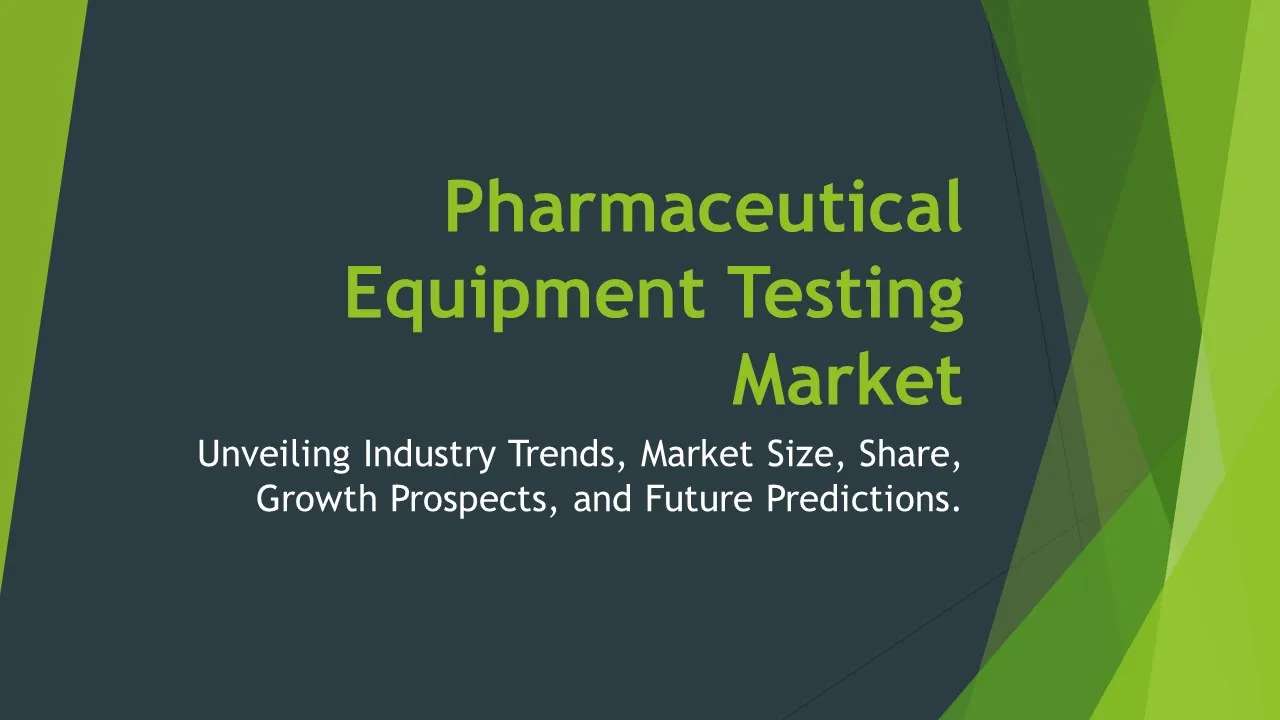Fingolimod Sales
Fingolimod Sales Market Segments - by Product Type (Branded Fingolimod, Generic Fingolimod), Application (Multiple Sclerosis, Organ Transplant Rejection Prevention), Distribution Channel (Hospital Pharmacies, Retail Pharmacies, Online Pharmacies), Region (North America, Europe, Asia Pacific, Latin America, Middle East & Africa) - Global Industry Analysis, Growth, Share, Size, Trends, and Forecast
- Report Preview
- Table Of Content
- Segments
- Methodology
Fingolimod Sales Market Outlook
The global fingolimod sales market was valued at approximately USD 4.5 billion in 2022 and is projected to grow at a CAGR of around 7.5% through 2025, reaching close to USD 6 billion by 2033. The growth of the fingolimod market is predominantly driven by the increasing prevalence of multiple sclerosis (MS) and the growing recognition of fingolimod as an effective treatment option. In addition, advancements in healthcare infrastructure and rising investments in research and development for new therapeutic applications are expected to further propel market growth. Moreover, the expansion of distribution channels, particularly online pharmacies, is enhancing product accessibility for patients. Regulatory approvals and favorable reimbursement policies are also contributing to the market's expanding horizon.
Growth Factor of the Market
The fingolimod sales market is experiencing robust growth due to several key factors, primarily the increasing incidence of multiple sclerosis, a chronic autoimmune disease that affects the central nervous system. The aging population globally is also contributing to the rise in MS cases, as the condition is more prevalent in individuals aged 20 to 40 years. Furthermore, innovations and advancements in medication formulations and delivery techniques have improved patient compliance and outcomes, driving demand for fingolimod. Increased awareness among healthcare professionals and patients alike regarding the benefits of early treatment and disease-modifying therapies is leading to a higher adoption rate of fingolimod. Additionally, strategic collaborations among pharmaceutical companies and healthcare providers are enhancing the overall market presence and facilitating the introduction of generic versions, which may widen the patient base.
Key Highlights of the Market
- The market is projected to grow at a CAGR of 7.5% from 2025 to 2033.
- North America holds the largest market share due to high healthcare expenditure and advanced medical infrastructure.
- Branded fingolimod remains a significant segment owing to brand loyalty and established efficacy.
- Online pharmacies are rapidly emerging as a preferred distribution channel for increased availability.
- The application of fingolimod in preventing organ transplant rejection is gaining traction as research progresses.
By Product Type
Branded Fingolimod:
The branded fingolimod segment holds a significant share of the market, primarily due to its established reputation and efficacy in treating multiple sclerosis. Branded products benefit from strong marketing and support from pharmaceutical companies, enhancing their visibility and trust among healthcare professionals and patients. Moreover, the exclusivity period during patent protection allows these brands to command higher prices, which can be attractive to companies for revenue generation. Patients often opt for branded medications due to the perceived reliability and quality assurance that come with established names. Additionally, the presence of comprehensive patient support programs often associated with branded products aids in improving adherence to treatment regimens, further solidifying this segment's position in the market.
Generic Fingolimod:
The generic fingolimod segment is enhancing its footprint in the marketplace as patents on branded versions lapse, allowing for cost-effective alternatives to enter the market. Generic fingolimod provides the same therapeutic benefits at a lower price point, making it an attractive option for cost-sensitive patients and healthcare systems. This accessibility is crucial, especially in regions with limited healthcare budgets or where affordability is a significant barrier to treatment. Additionally, the increasing acceptance of generics by healthcare providers and patients alike is bolstered by regulatory endorsements, which validate the efficacy and safety of these products. As the competitive dynamics shift, generic manufacturers are also focusing on quality and bioequivalence, which are essential in maintaining patient trust and market share.
By Application
Multiple Sclerosis:
Fingolimod is predominantly used for the treatment of multiple sclerosis, a chronic and often debilitating condition that affects millions of individuals worldwide. The application of fingolimod in MS treatment is characterized by its ability to reduce the frequency of relapses and slow the progression of disability. As awareness of MS grows and more patients seek appropriate management strategies, the demand for effective therapies like fingolimod is expected to rise significantly. Healthcare professionals are increasingly recognizing the importance of early intervention in MS, which propels the uptake of fingolimod as a first-line treatment option. Furthermore, ongoing clinical trials and studies continue to explore the long-term benefits and safety of fingolimod, adding to its credibility as a treatment choice for MS.
Organ Transplant Rejection Prevention:
Fingolimod's potential application in organ transplant rejection prevention is emerging as a significant opportunity within the market. Research indicates that fingolimod can modulate the immune response, thus playing a critical role in reducing the risk of rejection in organ transplant recipients. As transplant surgery rates increase globally, there is a growing need for effective immunosuppressive therapies that can ensure the longevity and success of transplanted organs. The expanding body of clinical evidence supporting the use of fingolimod in this context is likely to stimulate interest from healthcare providers and patients alike. Moreover, as healthcare systems focus on improving transplant outcomes, medications like fingolimod, which offer dual benefits, will be increasingly prioritized, contributing to market growth in this application area.
By Distribution Channel
Hospital Pharmacies:
Hospital pharmacies play a crucial role in the distribution of fingolimod, particularly for patients who are receiving treatment in a clinical setting. These pharmacies often have direct access to patients who require immediate medication upon diagnosis or during hospitalization. The presence of specialized healthcare providers within hospitals ensures that patients receive appropriate counseling regarding their treatment. Additionally, hospital pharmacies typically maintain a robust inventory of essential medications, including fingolimod, ensuring availability for patients. The close monitoring of patients by healthcare professionals in hospitals also encourages adherence to prescribed therapies, thereby enhancing the overall efficacy of treatment regimens involving fingolimod.
Retail Pharmacies:
Retail pharmacies are a significant channel for fingolimod distribution, as they cater to a broad patient base seeking outpatient medication. This channel provides convenience and accessibility for patients who may have difficulty accessing hospital facilities. Retail pharmacies often offer competitive pricing and promotions, making fingolimod more affordable for patients. With the increasing focus on personalized care, many retail pharmacies are developing specialized services to support patients on long-term therapies such as fingolimod, including medication therapy management and adherence programs. Additionally, the integration of technology, such as online prescription refills and home delivery services, is further enhancing the role of retail pharmacies in providing continuous access to fingolimod.
Online Pharmacies:
The rise of online pharmacies has transformed the landscape of medication distribution, including fingolimod. These platforms provide an alternative for patients who prefer the convenience of ordering medications from the comfort of their homes. Online pharmacies often have lower overhead costs, which can translate into competitive pricing for patients. Additionally, they offer discreet purchasing options, which may be particularly appealing for individuals who may feel stigmatized by their condition. As telemedicine and digital health solutions become increasingly accepted, the potential for online pharmacies to reach a larger audience continues to grow. Patients can also benefit from teleconsultations with pharmacists, allowing for personalized advice and support while managing their conditions with fingolimod.
By Region
North America currently dominates the fingolimod sales market, accounting for approximately 45% of the global share in 2022. The region's robust healthcare infrastructure, high healthcare expenditures, and the presence of key pharmaceutical companies significantly contribute to this dominance. The United States, in particular, has widespread access to healthcare services and advanced treatment options, which facilitate the prescription and utilization of fingolimod. Furthermore, the high prevalence of multiple sclerosis within the region drives demand for effective therapeutic solutions. The North America market is projected to maintain a steady CAGR of 8% from 2025 to 2033, reflecting ongoing innovations and expanding treatment guidelines.
Europe accounted for around 30% of the global fingolimod sales market in 2022 and is anticipated to demonstrate significant growth due to increasing awareness about multiple sclerosis and evolving treatment protocols. The region has witnessed a rising number of healthcare initiatives aimed at improving patient outcomes and providing better access to innovative therapies. The growing acceptance of generic fingolimod products is also projected to contribute to market expansion. The Asia Pacific region, while currently smaller in market share at approximately 15%, is expected to grow at the highest CAGR of 9% during the forecast period, driven by improving healthcare facilities, increasing investments in biotechnology, and rising disease awareness.
Opportunities
The fingolimod sales market presents numerous opportunities, particularly as research into its applications in various medical conditions expands. One significant opportunity lies in the exploration of fingolimod for other autoimmune disorders beyond multiple sclerosis. Ongoing clinical studies are investigating its benefits in conditions such as rheumatoid arthritis and lupus, which could diversify its application and drive new revenue streams for manufacturers. Additionally, as healthcare systems prioritize personalized medicine, there is an opportunity to develop tailored treatment regimens that incorporate fingolimod alongside other therapies to enhance patient outcomes. Expanding the indication range of fingolimod could ultimately increase the patient population and promote more widespread usage.
Another opportunity arises from the increase in digital health solutions and telemedicine, which can enhance patient access to fingolimod therapy. Online platforms and telehealth services can facilitate consultations and follow-ups, making it easier for patients to receive prescriptions and management plans remotely. This is particularly valuable for individuals in rural or underserved areas, where access to healthcare professionals may be limited. Furthermore, partnerships with online pharmacies and health tech companies can enhance distribution channels, making fingolimod more accessible. By leveraging technology, pharmaceutical companies can engage patients through education and support initiatives, ultimately improving adherence to treatment and fostering better health outcomes.
Threats
One of the primary threats facing the fingolimod sales market is the increasing competition from alternative therapies and generic medications. The introduction of numerous novel therapies for multiple sclerosis, including other disease-modifying agents, poses a challenge to fingolimod's market share. As more generic versions of fingolimod become available, the price competition could significantly impact revenues for branded products. Additionally, the ongoing changes in healthcare regulations and reimbursement policies could present uncertainties for pharmaceutical companies, affecting pricing strategies and market access. These factors necessitate a robust strategy for key players to maintain their competitive edge in a rapidly evolving marketplace.
Another significant restraining factor is the potential side effects and safety concerns associated with fingolimod. Although the medication has proven effective, adverse effects, such as increased risk of infections and cardiovascular issues, can deter physicians from prescribing it as a first-line treatment. This concern necessitates thorough patient education and risk management strategies to ensure that patients understand the importance of adherence while being aware of potential risks. Moreover, the need for ongoing monitoring and follow-up can limit the practicality of fingolimod treatment in certain patients, particularly those with comorbidities. These challenges require pharmaceutical companies to prioritize safety profiles and communicate effectively with both healthcare professionals and patients.
Competitor Outlook
- Novartis AG
- Teva Pharmaceutical Industries Ltd.
- Sanofi S.A.
- Celgene Corporation
- Pfizer Inc.
- Amgen Inc.
- Biogen Idec Inc.
- Eisai Co., Ltd.
- Hikma Pharmaceuticals PLC
- Mylan N.V.
- Sun Pharmaceutical Industries Ltd.
- AbbVie Inc.
- Roche Holding AG
- Merck KGaA
- UCB S.A.
The competitive landscape of the fingolimod sales market is characterized by a mixture of established pharmaceutical giants and emerging players seeking to capitalize on the growing demand for effective treatments for multiple sclerosis. Novartis, the original developer of fingolimod, continues to hold a strong market position, leveraging its extensive research capabilities and established brand reputation. The company invests significantly in marketing and patient education to enhance awareness of fingolimod's benefits, ensuring it remains a preferred treatment option for healthcare providers. Collaboration with research institutions and participation in clinical trials further bolster Novartis’s credibility and innovation in the market, allowing it to stay ahead of competitors.
Generic manufacturers, such as Teva and Mylan, are increasingly impacting the fingolimod sales market by offering cost-effective alternatives that appeal to cost-sensitive patients. These companies are dedicated to maintaining high-quality standards to ensure their generics are viewed as reliable options comparable to branded products. Moreover, the growth of online pharmacies has aided in the distribution of generics, making them more accessible to patients who might be seeking affordable treatment options. The competitive strategies of these generic manufacturers often involve aggressive pricing and strategic partnerships with healthcare providers to ensure broad market penetration.
Additionally, biopharmaceutical companies like Biogen and Sanofi are focusing on developing novel therapies for multiple sclerosis, which may pose indirect competition to fingolimod. These companies invest heavily in research and development to innovate new treatment modalities that may offer improved efficacy or reduced side effects. As the market continues to evolve with the introduction of new therapies, the competitive dynamics will shift, requiring all players to remain vigilant in their strategies and patient engagement efforts. The presence of numerous competitors necessitates a proactive approach to ensure that both branded and generic versions of fingolimod maintain their relevance and appeal within the rapidly changing therapeutic landscape.
1 Appendix
- 1.1 List of Tables
- 1.2 List of Figures
2 Introduction
- 2.1 Market Definition
- 2.2 Scope of the Report
- 2.3 Study Assumptions
- 2.4 Base Currency & Forecast Periods
3 Market Dynamics
- 3.1 Market Growth Factors
- 3.2 Economic & Global Events
- 3.3 Innovation Trends
- 3.4 Supply Chain Analysis
4 Consumer Behavior
- 4.1 Market Trends
- 4.2 Pricing Analysis
- 4.3 Buyer Insights
5 Key Player Profiles
- 5.1 UCB S.A.
- 5.1.1 Business Overview
- 5.1.2 Products & Services
- 5.1.3 Financials
- 5.1.4 Recent Developments
- 5.1.5 SWOT Analysis
- 5.2 Amgen Inc.
- 5.2.1 Business Overview
- 5.2.2 Products & Services
- 5.2.3 Financials
- 5.2.4 Recent Developments
- 5.2.5 SWOT Analysis
- 5.3 Merck KGaA
- 5.3.1 Business Overview
- 5.3.2 Products & Services
- 5.3.3 Financials
- 5.3.4 Recent Developments
- 5.3.5 SWOT Analysis
- 5.4 Mylan N.V.
- 5.4.1 Business Overview
- 5.4.2 Products & Services
- 5.4.3 Financials
- 5.4.4 Recent Developments
- 5.4.5 SWOT Analysis
- 5.5 AbbVie Inc.
- 5.5.1 Business Overview
- 5.5.2 Products & Services
- 5.5.3 Financials
- 5.5.4 Recent Developments
- 5.5.5 SWOT Analysis
- 5.6 Novartis AG
- 5.6.1 Business Overview
- 5.6.2 Products & Services
- 5.6.3 Financials
- 5.6.4 Recent Developments
- 5.6.5 SWOT Analysis
- 5.7 Pfizer Inc.
- 5.7.1 Business Overview
- 5.7.2 Products & Services
- 5.7.3 Financials
- 5.7.4 Recent Developments
- 5.7.5 SWOT Analysis
- 5.8 Sanofi S.A.
- 5.8.1 Business Overview
- 5.8.2 Products & Services
- 5.8.3 Financials
- 5.8.4 Recent Developments
- 5.8.5 SWOT Analysis
- 5.9 Eisai Co., Ltd.
- 5.9.1 Business Overview
- 5.9.2 Products & Services
- 5.9.3 Financials
- 5.9.4 Recent Developments
- 5.9.5 SWOT Analysis
- 5.10 Biogen Idec Inc.
- 5.10.1 Business Overview
- 5.10.2 Products & Services
- 5.10.3 Financials
- 5.10.4 Recent Developments
- 5.10.5 SWOT Analysis
- 5.11 Roche Holding AG
- 5.11.1 Business Overview
- 5.11.2 Products & Services
- 5.11.3 Financials
- 5.11.4 Recent Developments
- 5.11.5 SWOT Analysis
- 5.12 Celgene Corporation
- 5.12.1 Business Overview
- 5.12.2 Products & Services
- 5.12.3 Financials
- 5.12.4 Recent Developments
- 5.12.5 SWOT Analysis
- 5.13 Hikma Pharmaceuticals PLC
- 5.13.1 Business Overview
- 5.13.2 Products & Services
- 5.13.3 Financials
- 5.13.4 Recent Developments
- 5.13.5 SWOT Analysis
- 5.14 Sun Pharmaceutical Industries Ltd.
- 5.14.1 Business Overview
- 5.14.2 Products & Services
- 5.14.3 Financials
- 5.14.4 Recent Developments
- 5.14.5 SWOT Analysis
- 5.15 Teva Pharmaceutical Industries Ltd.
- 5.15.1 Business Overview
- 5.15.2 Products & Services
- 5.15.3 Financials
- 5.15.4 Recent Developments
- 5.15.5 SWOT Analysis
- 5.1 UCB S.A.
6 Market Segmentation
- 6.1 Fingolimod Sales Market, By Application
- 6.1.1 Multiple Sclerosis
- 6.1.2 Organ Transplant Rejection Prevention
- 6.2 Fingolimod Sales Market, By Product Type
- 6.2.1 Branded Fingolimod
- 6.2.2 Generic Fingolimod
- 6.3 Fingolimod Sales Market, By Distribution Channel
- 6.3.1 Hospital Pharmacies
- 6.3.2 Retail Pharmacies
- 6.3.3 Online Pharmacies
- 6.1 Fingolimod Sales Market, By Application
7 Competitive Analysis
- 7.1 Key Player Comparison
- 7.2 Market Share Analysis
- 7.3 Investment Trends
- 7.4 SWOT Analysis
8 Research Methodology
- 8.1 Analysis Design
- 8.2 Research Phases
- 8.3 Study Timeline
9 Future Market Outlook
- 9.1 Growth Forecast
- 9.2 Market Evolution
10 Geographical Overview
- 10.1 Europe - Market Analysis
- 10.1.1 By Country
- 10.1.1.1 UK
- 10.1.1.2 France
- 10.1.1.3 Germany
- 10.1.1.4 Spain
- 10.1.1.5 Italy
- 10.1.1 By Country
- 10.2 Asia Pacific - Market Analysis
- 10.2.1 By Country
- 10.2.1.1 India
- 10.2.1.2 China
- 10.2.1.3 Japan
- 10.2.1.4 South Korea
- 10.2.1 By Country
- 10.3 Latin America - Market Analysis
- 10.3.1 By Country
- 10.3.1.1 Brazil
- 10.3.1.2 Argentina
- 10.3.1.3 Mexico
- 10.3.1 By Country
- 10.4 North America - Market Analysis
- 10.4.1 By Country
- 10.4.1.1 USA
- 10.4.1.2 Canada
- 10.4.1 By Country
- 10.5 Fingolimod Sales Market by Region
- 10.6 Middle East & Africa - Market Analysis
- 10.6.1 By Country
- 10.6.1.1 Middle East
- 10.6.1.2 Africa
- 10.6.1 By Country
- 10.1 Europe - Market Analysis
11 Global Economic Factors
- 11.1 Inflation Impact
- 11.2 Trade Policies
12 Technology & Innovation
- 12.1 Emerging Technologies
- 12.2 AI & Digital Trends
- 12.3 Patent Research
13 Investment & Market Growth
- 13.1 Funding Trends
- 13.2 Future Market Projections
14 Market Overview & Key Insights
- 14.1 Executive Summary
- 14.2 Key Trends
- 14.3 Market Challenges
- 14.4 Regulatory Landscape
Segments Analyzed in the Report
The global Fingolimod Sales market is categorized based on
By Product Type
- Branded Fingolimod
- Generic Fingolimod
By Application
- Multiple Sclerosis
- Organ Transplant Rejection Prevention
By Distribution Channel
- Hospital Pharmacies
- Retail Pharmacies
- Online Pharmacies
By Region
- North America
- Europe
- Asia Pacific
- Latin America
- Middle East & Africa
Key Players
- Novartis AG
- Teva Pharmaceutical Industries Ltd.
- Sanofi S.A.
- Celgene Corporation
- Pfizer Inc.
- Amgen Inc.
- Biogen Idec Inc.
- Eisai Co., Ltd.
- Hikma Pharmaceuticals PLC
- Mylan N.V.
- Sun Pharmaceutical Industries Ltd.
- AbbVie Inc.
- Roche Holding AG
- Merck KGaA
- UCB S.A.
- Publish Date : Jan 21 ,2025
- Report ID : PH-66828
- No. Of Pages : 100
- Format : |
- Ratings : 4.5 (110 Reviews)
Related reports









